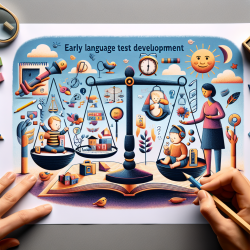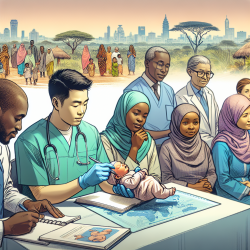The Canadian Residency Matching Service (CaRMS) plays a crucial role in determining the future of medical graduates in Canada. However, the system presents significant challenges for International Medical Graduates (IMGs), who often face marginalization despite their qualifications. This blog explores the findings of a research article titled "When a Canadian is not a Canadian: marginalization of IMGs in the CaRMS match" and discusses how practitioners can improve their skills by addressing these issues.
The Challenges Faced by IMGs
The research highlights that IMGs, who are either Canadian citizens or permanent residents, are often marginalized in the CaRMS match process. Despite demonstrating competence through examinations like the MCCQE1 and NAC OSCE, IMGs face systemic barriers that limit their access to residency positions. In 2020, while Canadian Medical Graduates (CMGs) had a 97.7% match rate, IMGs only had a 22.6% match rate, highlighting a significant discrepancy.
Structural Barriers and Discrimination
The current CaRMS system segregates CMGs and IMGs into separate streams during the first iteration of the match. This segregation results in limited opportunities for IMGs, who are often restricted to fewer residency positions and specialties compared to CMGs. Additionally, while CMGs are not required to pass certain examinations before applying for residency, IMGs must demonstrate their competence through standardized tests before they can even apply.
Improving Practitioner Skills Through Equity
Practitioners can enhance their skills and contribute to a more equitable healthcare system by understanding and addressing these challenges faced by IMGs. Here are some strategies:
- Advocate for Policy Changes: Engage with policymakers and medical associations to advocate for changes in the CaRMS eligibility criteria that align with Canadian values of equity and diversity.
- Promote Objective Assessment: Support the implementation of standardized objective assessments for all applicants, ensuring that residency decisions are based on merit rather than nationality or place of education.
- Foster Inclusive Decision-Making: Encourage the inclusion of IMG representatives in decision-making bodies that affect their future medical education and practice.
The Role of Further Research
The research article calls for further exploration into the experiences of IMGs within the CaRMS system. Practitioners can contribute to this body of knowledge by conducting studies that examine the long-term impacts of marginalization on IMGs' careers and patient outcomes. Such research can provide valuable insights into how systemic changes can improve healthcare delivery in Canada.
A Call to Action
The Canadian Medical Association's Policy on Equity and Diversity in Medicine emphasizes reducing structural barriers faced by marginalized groups. As practitioners, it is essential to embrace this policy and work towards creating an inclusive environment where all qualified candidates have equal opportunities to succeed.
The journey towards equity in medical education requires collaboration among educators, policymakers, and practitioners. By addressing the challenges faced by IMGs in the CaRMS match process, we can ensure that "A Canadian is a Canadian," fostering a more diverse and competent healthcare workforce.
When a Canadian is not a Canadian: marginalization of IMGs in the CaRMS match










